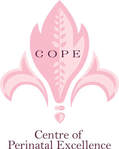|
Mums often feel stressed and overwhelmed by the never ending ‘to-do’ list. When we become parents, there are countless things to be done.
Attending to the many and varied needs of our child/children, washing, cooking, cleaning, shopping, folding, tidying, arranging outings, drop offs, pick ups, medical appointments, and on it goes. In the midst of the perpetual ‘to-do’ list, mums often just keep doing - driven by the desire to feel a sense of completion. The problem is that the completion is rarely attained. We chase our tails trying to finish the list, only to bear witness to its endless regeneration. We stay up late to get things done, we permanently feel exhausted, becoming less efficient and more overwhelmed by the looming list. As a result, we beat ourselves up for not achieving what we’d hoped. With the weight of this inner turmoil, we can become more stressed, less patient, and more snappy. Then, we feel even worse about ourselves. So how do we change this vicious cycle? CHANGE YOUR EXPECTATIONS Let go of the need to experience the full completion. Allow yourself to feel satisfied by achieving one thing at a time. Change your relationship with the idea of “getting it all done”, and let yourself feel gratification from getting something/some things done. In other words, change your expectations about what is achievable. By all means, keep a ‘to-do’ list so you don’t have to store things in your head, but accept that the list is ever evolving. ADD THE REALLY IMPORTANT THINGS YOU DO TO YOUR ‘TO-DO’ LIST Mums are notoriously bad at recognizing and valuing the things they do achieve. Yes, these are the things that may prohibit certain other tasks from getting done, but they are the things that matter the most – attending to the needs of our children. Instead of feeling frustrated that you haven’t achieved the tasks on your list, write down what you actually are achieving. For example, “respond when baby cries” (tick), “feed baby” (tick), “keep baby safe” (tick), “cuddle baby” (tick), “talk to baby” (tick), “settle baby” (tick), “change baby” (tick)… you get the idea. “Play with toddler” (tick), “soothe toddler” (tick), “attend to sharing issues” (tick), “feed toddler” (tick), “read to toddler” (tick)… These things can take a good part of the day (and much of the night), but if you value them, you might feel less frustrated by not having achieved other tasks on list. This might allow you to feel a sense of mastery over what you have achieved, rather than a sense of inadequacy over what you have not. ADD ‘TO-BE’ TO YOUR ‘TO-DO’ Step off the ‘to-do’ treadmill and think about adding ‘to-be’ to this list. Do you set aside time to stop? Do you give yourself time to just think, sit and have a cup of tea, read, breathe deeply, contemplate, talk to a friend? It’s ludicrous to think you can just keep going, without time to relax, reflect, and rejuvenate. The other part of ‘to-be’ is to think about how you want to be. How do you want to be as a mother? How do you want to be as a spouse? How do you want to be as a daughter, friend, individual? For example, you may want to be “more calm”, “more patient”, “more fun”. To help you to make these changes, Dr Renée Miller from the Antenatal & Postnatal Psychology Network and Dr Nicole Highet from COPE (Centre of Perinatal Excellence) designed a ‘to-do to-be’ list for you to download and use for 2019. HOW TO USE IT
SUMMARY Change your expectations about what is achievable, and you might be kinder to yourself. Gain some perspective on what you actually do achieve, and you might feel better about yourself. Keep a ‘to do’ list to stay on top of what needs to be done, but don’t expect to get it all done, and don’t attach your self-worth to completion. Value your role as a mother and your self-worth might get a boost. Incorporate and schedule just ‘being’ so you can rejuvenate and be a better version of yourself (without guilt). This might help you to feel less stressed. Decide how you want to be, and set your intention with each new ‘to-do to-be’ list, so you can reflect objectively on your expectations in line with the person you want to be. When you’re clear on how you want to be, your ‘to-do’ might look a little different. Download our 'To-do to-be' list here |
AuthorPosted by Dr Renée Miller Topics
All
|
|
We acknowledge and pay respects to the Elders and Traditional Owners of the land on which our psychologists practise.



 RSS Feed
RSS Feed

